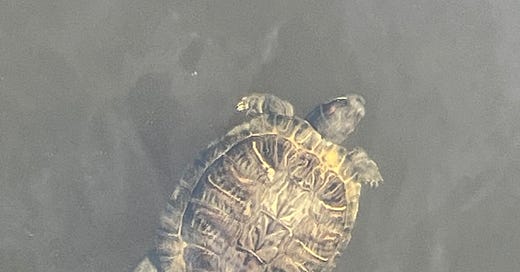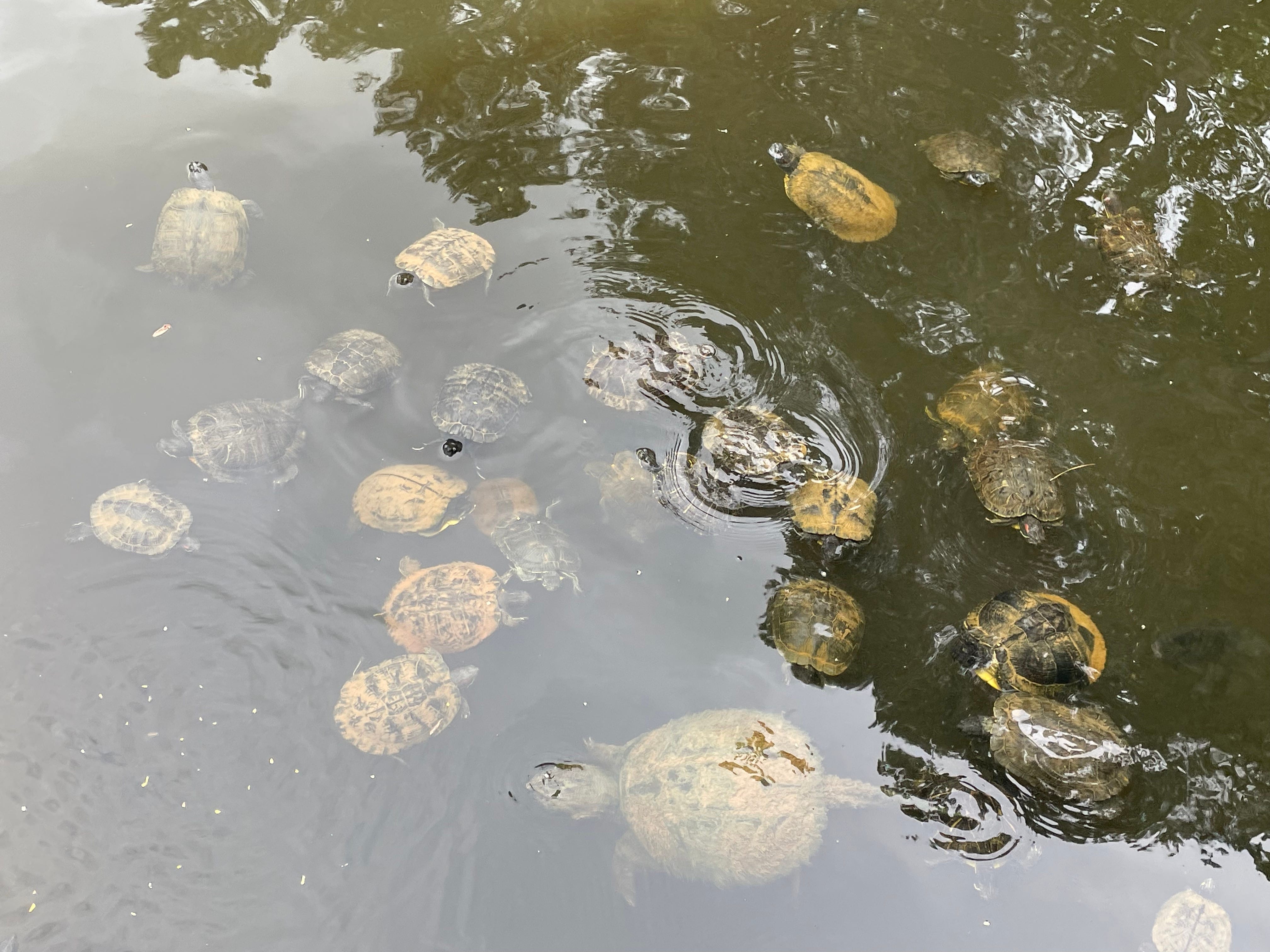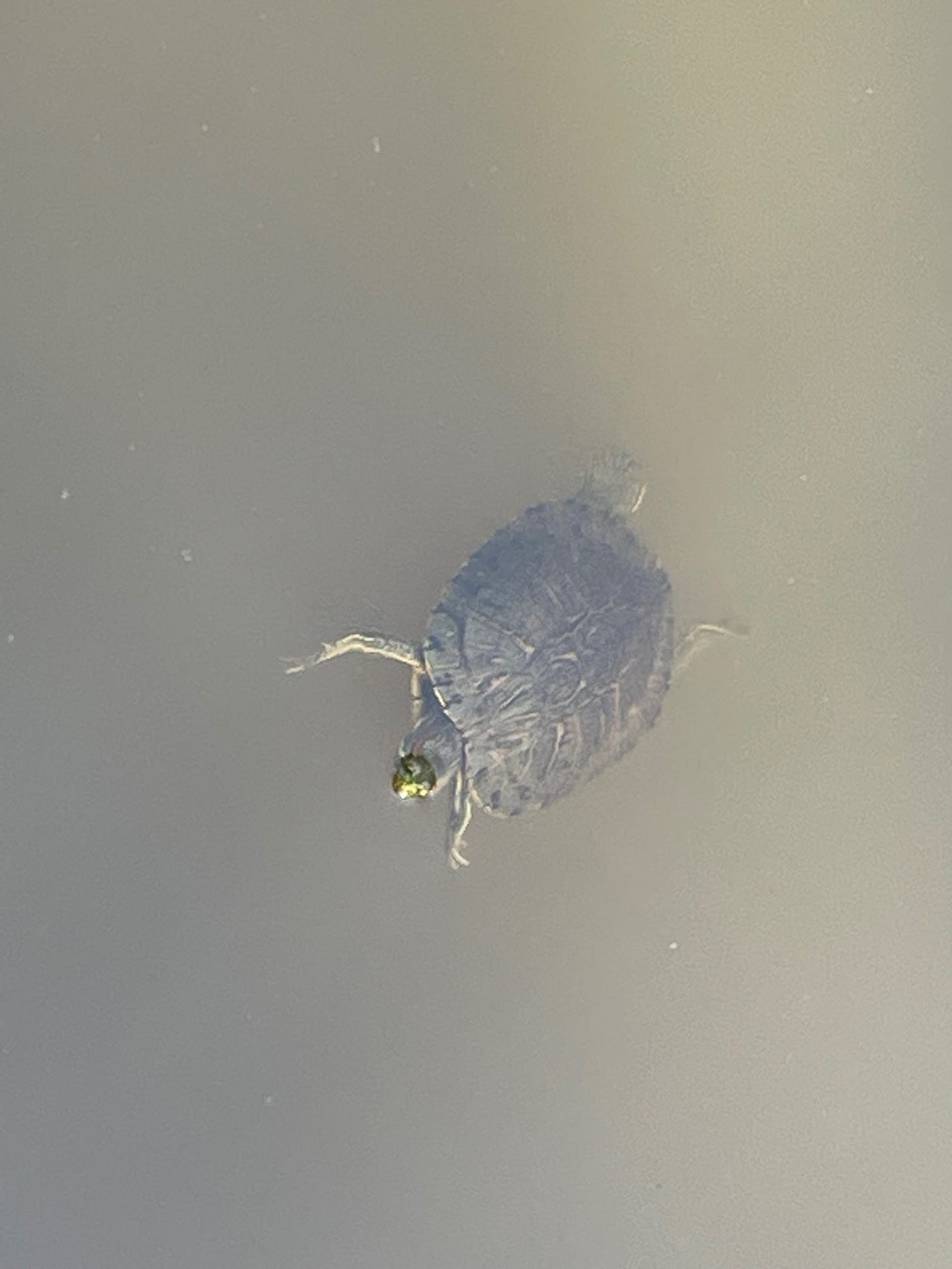(NOTE: In any posts I publish about my psychotherapy clients, the person’s name and some identifying details have been changed to protect their privacy. Also, I always have the client’s permission to share their story here. If anything you read in this post triggers a trauma response in you, please consult with your own therapist if you have one — or call the national mental health crisis lifeline at 988 in the U.S. and 0800 689 5652 in the U.K.)
Today is an anniversary for Holly, but not a happy one.
We’re standing together in a gazebo overlooking the lake in a lovely, sunlit botanical garden.
It’s the kind of afternoon in late spring/early summer that uplifts most people. We tilt our faces to the sun, inhale the breeze, revel in the colors of all the blooms.
For Holly, this time of year is not uplifting. It’s soaked in sadness and pockmarked with painful milestones.
On this day in 1974, she and her brother – he was 3, she was only 9 months – were taken from their mom permanently and put into foster care. That was the first big loss in her life.
On this day in 1992, Holly’s adoptive dad died after three weeks in a coma. She was 18, and had just graduated from high school. Her second big life loss.
Holly has been my client for five years. Unwinding trauma like hers takes time, sometimes a long time. Carefully, slowly, we peel the layers of the onion, easing our way down into the core of heartbreak and self-doubt.
Every Thursday afternoon Holly leaves work early and shows up at my office for her weekly counseling session. In recent years, we discovered how much she loves nature therapy – so our sessions move outdoors whenever the weather is good.
When she first came to see me, Holly was wrestling with the decision of whether to meet her biological mother in person. Her relationship with her adoptive mom has been a difficult one, full of emotional and physical abuse. For decades she wondered how her life might have been different had she grown up with her birthmom.
Who is my biological mother? What’s she like? Does she think about her lost daughter? Does she still love me? Did she ever love me?
The questions haunted Holly. Like some people who were adopted early in life, she fantasized about a day when she would meet her birthparent and they’d instantly bond.
Meanwhile, she has struggled since childhood with ADD and eruptive anger. She used to slice her arms with a box-cutter blade. She never married.
Our work together started with trust building.
The only person Holly had ever been able to rely on was her adoptive father — a kind, patient man who poured himself into his career and ignored his health. He collapsed on the night of Holly’s senior prom, and died a few days after her graduation. Holly’s main source of emotional support and protection was gone.
To this day, she still refers to him as “Daddy.”
Last year, on the 30th anniversary of his death, Holly and I found an isolated patch of woods on a nature trail. There, we did a simple ritual.
Holly read aloud a letter she wrote to her daddy a few days earlier.
“I hope you’d be proud of who I am now,” she wrote. “I know I have the right to make my own choices, to be my own self.”
(A strong statement from someone who entered therapy with battered self-esteem, don’t you think?)
Then we dug a small hole. Holly buried the letter, along with her father’s wedding ring and his Masonic pin. She said she felt ready to let go of those things.
And now, a year later, the anniversary has come again.
Holly requested that today’s session be at the lake, with the turtles.
Earlier in our nature adventures, she discovered a kinship with turtles. So many things about them, she can identify with. Their tough exteriors. Their ability to right themselves if they get flipped over. The way they withdraw into their shells when danger is near. Holly likened that to what she did as a child whenever her adoptive mom flew into a rage.
The turtle revelation brought on tears.
“That’s not me,” Holly said. She sounded surprised.
“I don’t cry. It wasn’t safe to cry. I usually shut down.”
Eventually she decided to meet her biological mother, and started a long-distance relationship with her. It’s still a secret from her adoptive mother.
Holly struggles with having to “share” her bio-mom with the other people in the mother’s household: Holly’s half-sister and the half-sister’s son and his toddler daughter. There’s also bio-mom’s estranged husband who’s still around, and her current boyfriend. In other words, the biological mother has a full, complicated life. Holly doubts there’s room for her in that scenario.
Most of their phone conversations and FaceTimes consist of Holly listening to bio-mom narrate her own daily dramas. There’s little interest in the details of Holly’s life. It’s disappointing, to say the least. Not quite the warm and fuzzy mother-daughter bond she had dreamed of.
We gaze down at the water where turtles are floating, lazily paddling their feet and every so often poking their heads out of the water to look at us. Most are full-grown, red-eared sliders with coats of orange algae on their shells.
“Everybody kind of overlooks turtles,” Holly says. “They’re slow and they keep to themselves. They don’t do much.”
She ponders for a moment.
“But you know, they’re actually kinda bad-ass. I mean, they’ve been around since the dinosaurs! They’re f---ing survivalists.”
(Sorry! I forgot to warn you that Holly sprinkles in a cuss word, here and there.)
A grin lights up her face.
“I like how they seem to have an attitude,” she says. “They just do their own thing and they don’t give a shit about anything else.”
We spy a baby turtle, all four feet churning frantically as it swims after a larger turtle, presumably its mother. Mama turtle ignores baby turtle. When baby turtle keeps pestering her for attention, mama finally spins around and pushes it away with one of her front feet.
“Imagine that,” says Holly. “A mother rejecting her child.”
This is Holly’s well-honed defense mechanism: sarcasm. It peppers our sessions, especially whenever we touch on painful topics -- like why her biological mother seems so disinterested, or why her adoptive mom still tries to control her every move. A sarcastic remark or a joke ensures that Holly can avoid expressing the depth of her feelings.
It’s my job to nudge her beyond the armored walls of humor so we can tunnel down to the emotional bedrock. That’s where change lies … and healing.
The turtles help. It’s as if Holly channels wisdom from them, every time we visit the lake. She says insightful things, things that make me want to cry out, “Yes! Eureka!”
When we lean over the railing of the gazebo, peering down at the water, Holly visibly relaxes. It has some kind of soothing effect on her nervous system.
As we stroll away, I ask her if she can put into one word what the turtles embody for her.
“Calm,” she says. “Calm.”
Her voice is strong, and sure.









A wonderful, touching post. We're all rooting for people like Holly to find the joy in life that they deserve.
Beautiful